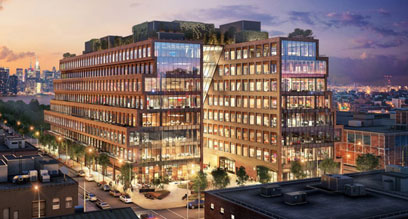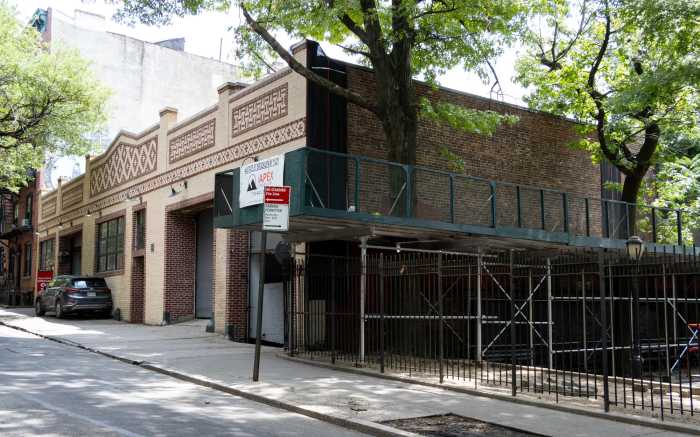Call it a messiah office complex.
The city is trying to swindle Williamsburgers into surrendering the neighborhood’s industrial land to office developments by claiming it is the only way to save factories from becoming hotels and nightclubs, says an expert in blue-collar building. But it is a false choice, says the guru, when the far simpler solution is just to ban new hotels and nightclubs.
“City Planning should fix the decades-old hotel problem,” said Adam Friedman, director of Pratt University’s Center for Community Development, who shot down the city’s scheme before Community Board 1’s land-use committee on Wednesday. “The community has been asking for limits on hotel — for the community to now be told that the City is testing an office strategy without any study and without dealing with the hotel issue is rubbing salt in the wound.”
The committee ultimately voted 6–3 with one abstention and two recusals to approve the zoning change that would allow Toby Moskowitz’s to erect an eight-story office building at Kent Street and West Avenue with a handful of recommendations — such as measures that would guarantee the development’s affordability for local businesses — kicking off a the project’s lengthy public review process.
City Planning officials say Moskowitz — a member of Community Board 1 — should be allowed to skirt the area’s zoning rules because she’s promising to dedicate a sliver of space in the property to light manufacturing, such as bakeries or woodworking studios.
During the past decade, Williamsburg’s so-called Industrial Business Zone has been overrun by new entertainment venues — which can pay top dollar for buildings but create relatively few jobs — and proponents see this project as a way to entice developers to build business hubs in the area again.
“Manufacturing complexes have been taken over by these other uses, and this is trying to get some of that back,” said Ray Levin, a lawyer for the developer.
In fact, officials are so enthusiastic about the idea, they’re pitching a companion bill that would allow any developer to build similar cubicle complexes within a 14-block radius around the site.
But Friedman — who specializes in manufacturing development at the Clinton Hill college — says it will do nothing to stop builders who really want to create new discotheques and boutique hotels. The community has been demanding the city create a moratorium on non-industrial development in the area for a decade, and nothing will really change until it does, he says.
“If they don’t like the deal they’re getting, they can always build hotels,” he said.
Mayor DeBlasio finally pledged to at least make it harder to build hotels and storage facilities — another high-profit, low-employment enterprise — in the zone in November, but the city now says it has to finish a year-long study before it can go ahead with that.
Residents questioned why that change requires a drawn-out investigation, while officials are already steaming ahead with the office project.
“Why can’t City Planning get rid of hotels and storage units in manufacturing districts, but they can do this like magic?” said board member Tom Burrows.
But a city rep claimed the department cannot rezone a large area without first doing a study, and that the Kent Avenue project is itself a trial run.
“We don’t want to bring this product out willy-nilly across a pretty significant chunk of industrial area without doing a test,” said Alex Sommer.
The proposal will next come before the full community board, though the panel’s recommendation is only advisory. The decision will likely come down to a Council vote, and the local member Councilman Steve Levin (D–Williamsburg) has already voiced his enthusiastic support.

























